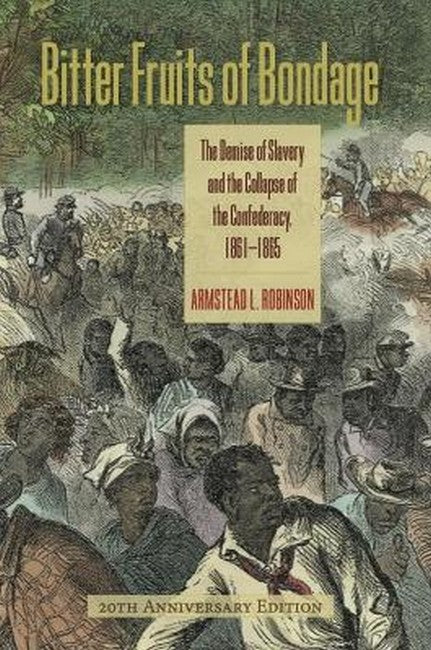Armstead L. Robinson, who died in 1995, was the founding director of the Carter G. Woodson Institute for Afro-American and African Studies at the University of Virginia. Joseph P. Reidy is Professor of History at Howard University. Barbara J. Fields is Professor of History at Columbia University.
Request Academic Copy
Please copy the ISBN for submitting review copy form
Description
Although most nonslaveholders enlisted-seeing slavery as central to their way of life and conforming to the culture of (white) southern honor-secession disrupted an alleged racial consensus and revealed cracks and ruptures in the southern social system. Class tensions were exacerbated by an unequal treatment of southern citizens that consistently preferenced planters, and these tensions contributed to Confederate defeat as much as did an imbalance of resources." - The Journal of Southern History "A polished monograph of ten chapters that stands as a most significant and original contribution to the voluminous literature about the seminal event in the making of this nation . . . Robinson, a prodigious researcher, marshaled impressive evidence from field reports on how as the war dragged on, desertion, disaffection, and defeatism plagued southern ranks. From the start, slaveholders' visions of a Union invasion of southern black belts excited insurrectionary anxieties that affected deployment of scarce resources in a way that confirmed for many yeomen the truthfulness of the adage, 'Rich man's war; poor man's fight.' At the time of his death, Robinson probably knew more about slave resistance during the war than any other historian." - Journal of Social History "This long-anticipated, posthumously published study stands as a fitting tribute to the research skills and interpretive boldness of its author . . . he presented a powerful case for including class conflict in any understanding of Confederate defeat. This is a book that all students of the Civil War will want to read." - Law and History Review "The study centers on Robinson's basic questions-why did the Confederacy lose the Civil War and why did Confederate nationalism disintegrate so rapidly after the war's end? Robinson, informed by studies of other national revolutions, particularly Josef V. Polisensky's The Thirty Years War (1971), and aware of America's Vietnam experience, believed that the North's superior military strength could not alone explain the Confederacy's fate. Past revolutions had shown that people desiring freedom could succeed in the face of overwhelming odds. He concluded that the process of social change initiated during the drive for Confederate nationalism and continuing through the war undermined the social and cultural foundations of southern society. Slavery and slaves became a millstone around the neck of the Confederacy rather than its cornerstone. Social cohesion among whites gave way to fatally destructive class conflict. In the end, the South tore itself apart." - Arkansas Historical Quarterly "The thesis is cogently argued, and the book would work well as a provocative undergraduate textbook. Robinson's widow, Mildred, and his former colleagues at the University of Virginia and elsewhere are to be commended for undertaking the task. The book's emphasis on the social causes of defeat in the West will propel the debate in useful directions, and for that scholars should be grateful." - Civil War History "A valuable contribution to the continuing debate over why the South lost the Civil War, and one whose depth of research and breadth of argument will be hard to duplicate." - American Historical Review

